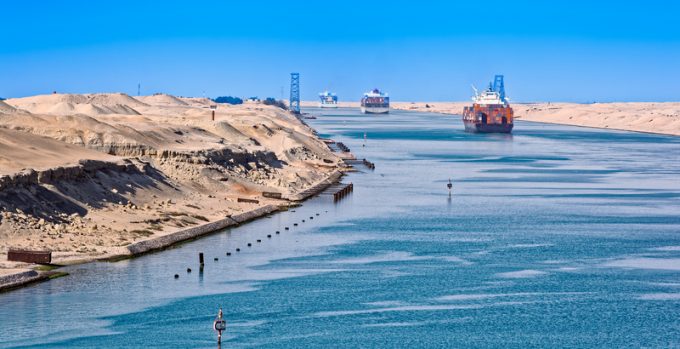Egypt expands customs handling via blockchain and goes multimodal
Following the launch of its National Single Window for Foreign Trade Facilitation (NAFEZA) last year, Egypt’s ...

Despite the recent introduction of low-sulphur regulations, the Suez Canal Authority (SCA) will continue to allow ships transiting the waterway to burn heavy fuel oil (HFO) without the need for scrubbers.
Adding to the confusion for ship managers is a ban by the SCA on the ...
CMA CGM South Korean staff strike over bonuses after bumper 2024 profit
MSC switches two more Asia-Europe port calls from congested Antwerp
Ports and supply chain operators weigh in on funding for CPB
Nightmare for Bangladeshi exporters as congestion and tariffs bite
Carriers introduce surcharges as congestion builds at African ports
Box ship overcapacity threat from carrier appetite for new tonnage
CMA airline returns two freighters, while ANA takeover of NCA looms
Tradelanes: Export boom in Indian sub-continent triggers rise in airfreight rates

Comment on this article